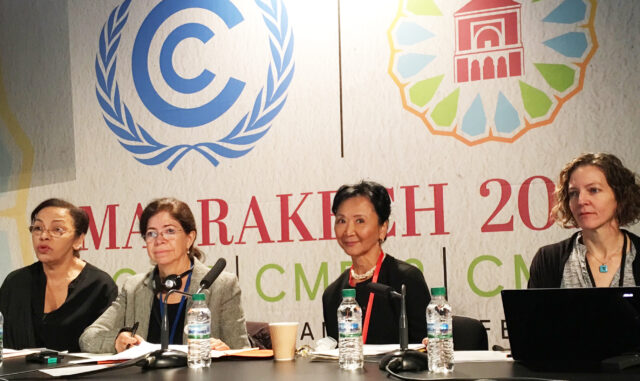The UN has declared a climate emergency–and it is real. We must reduce greenhouse gas emissions enough to keep the earth’s temperature below 1.5 degree Celsius and prevent irreversible damage to our world’s ecosystems.

How can we beat the earth’s clock? For years, the feminist and women’s movements have argued this truth: if you want to scale up and speed up progress on any development agenda, you have to unleash the power of women’s potential. When women can freely decide how many children they want, family sizes will adjust more quickly to available resources. Rural and indigenous women are particularly knowledgeable about protecting biodiversity and combatting climate change because they practice seed selection, manage forests, and make decisions about household energy use. This isn’t just about human rights principles. It is applying these principals to get practical results and solve global problems.
The flip side to this argument is that gender discrimination puts the brakes on progress, particularly poverty reduction. Women are the main decision makers and workers related to water use but are poorly represented in water management. Women are critical in rebuilding communities after natural disasters, but more women than men die during those tragic times. Women produce the majority of the world’s food but own less than 11 percent of the land. Imagine the hurdles they have to face in post-conflict situations to rebuild their farms. All of this adds up to one conclusion: gender inequality is bad economics and bad governance.
Women can leverage the power of global consensus documents. The women’s movement needs to make sure that the Beijing Platform for Action (BPfA) works side-by-side with the Convention on the Elimination of All Forms of Discrimination against Women (CEDAW). The BPfA acts as a policy guide, and CEDAW gives it teeth as a legally binding instrument.
The CEDAW Committee took a strong position in the General Recommendation 37 stating that all stakeholders should ensure that climate change and disaster risk reduction measures are gender responsive, sensitive to indigenous knowledge systems and respect human rights. Women’s right to participate at all levels of decision-making must be guaranteed in climate change policies and program.
Let’s make sure that governments put gender equality and the empowerment of women and girls front and center in climate policies. These are the accelerators we need to save our planet.